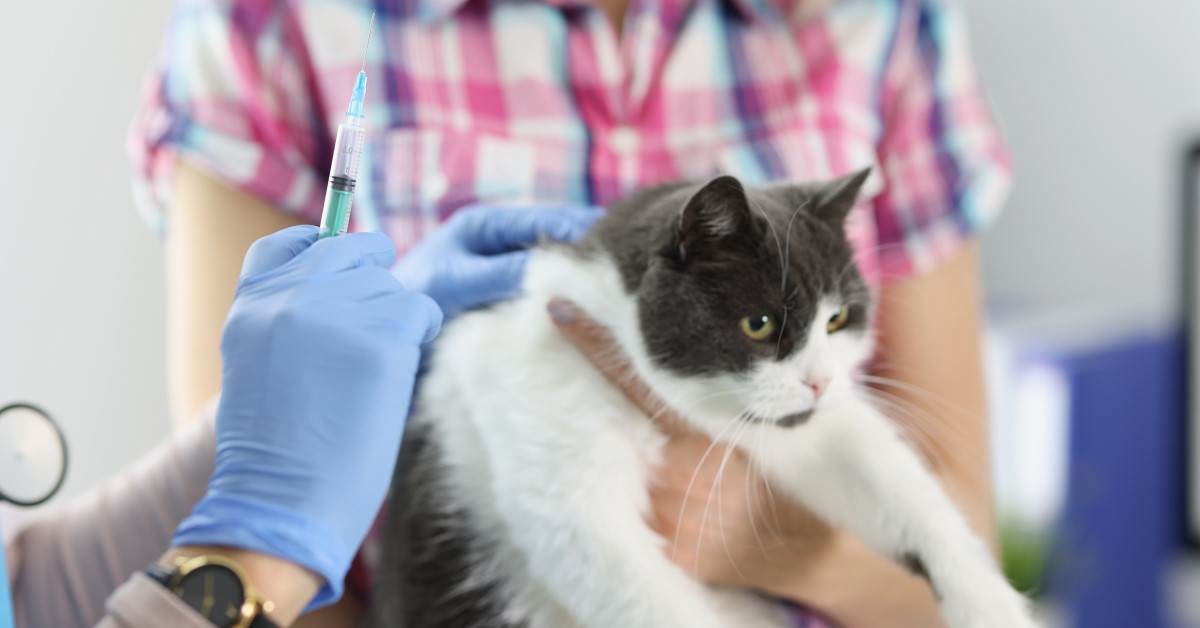Worming Schedule for Kittens and Cats
Following a deworming schedule for your kitten or cat helps ward off infections and maintain your pet’s health.

Worms are a type of intestinal parasite that resides inside the intestines. Kittens can pick them up in utero or they can be passed between the mom and kittens after birth. Cats can also pick up worms outdoors from the soil, trash, feces, or from other infected cats.
Once a cat gets worms, these parasites can wreak havoc on your pet’s intestinal system, resulting in uncomfortable symptoms and illnesses. They also generate inflammation in the intestinal wall and reduce the amount of nutrition your cat absorbs.
Fortunately, most worm infections can be prevented by following a simple deworming schedule designed for kittens and cats.
Signs and Symptoms of Worms in Kittens and Cats
Cats of any age or gender can contract worms. Similar to dogs, kittens and cats often encounter a variety of types of worms, such as roundworms, tapeworms, hookworms, heartworms, and whipworms. They can also take in lungworms, stomach worms, liver worms, and bladder worms. If your cat has worms, he may exhibit some or all of the following signs and symptoms:
- Change in Coat – Your cat’s fur may suffer if he becomes infested with parasites. Your pet’s coat may appear dull, clumped, or rumpled due to a lack of hydration and nutrition.
- Change in Color of Gums – When healthy, your cat’s gums should appear firm and pink. However, cats with pale or white gums may be experiencing anemia due to worms.
- Change in Stool/Bowel Movements – Cats with worms, especially hookworms, may have dark, tar-like stools with the presence of blood. Worms can also cause cats to have diarrhea.
- Vomiting – Although vomiting in cats can indicate a wide range of illnesses, vomiting in combination with other signs and symptoms could indicate that your pet has worms.
- Increased Appetite – If your cat has an increased appetite but is still losing weight, it may be due to stolen nutrients from a worm infection. Cats with worms often take in more food to maintain their body weight.
- Visible Presence – One of the most obvious signs that your cat has worms is the actual presence of these worms in your cat’s stools, around the anus, or stuck to the fur. You may see whole worms, parts of worms, or worm eggs.
Cat Worming Schedule
Kittens should receive a deworming treatment based on the following schedule or as recommended by your vet:
- Every 2 weeks until three months old, starting at age 3 weeks
- Monthly from three months old to six months old
- After six months of age, follow adult recommendations.
Adult cats should receive a deworming treatment every one to three months, depending on their risk of exposure to worms. Tapeworms are most common in older cats and kittens who have fleas. Consider using a product that is effective against both tapeworms and roundworms. Kittens with flea infestations should be administered a product that is active against Dipylidium caninum.
It's always a good idea to have your pet dewormed if it is newly purchased or adopted. If possible, obtain the deworming schedule from the previous owner or kennel. If you’re not sure when the animal was last wormed, deworm immediately and then repeat after two weeks. You can then continue the recommended guidelines for kitten and cat deworming.
Types of Dewormers for Cats
There are several different types of deworming medications on the market for use in kittens and cats. Tablets are convenient as they can be given to cats directly or mixed in with their food. Deworming tablets are the most common type of worming medication.
Another option is spot-on dewormers that are applied in the same manner as flea medications. The medication is simply added in drops to the cat’s neck near the base of the skull where it is then absorbed into the skin.
The last deworming medication option is a paste or granule. This type of medication can be more difficult to administer than tablets or liquid drops; however, some pet owners find it convenient to mix the paste in with their cat’s food.
Benefits of Deworming Kittens and Cats
Keeping up with your cat’s deworming treatments is important for their general health and wellbeing. Here are some of the benefits of following a cat deworming schedule:
- Keep Your Cat Healthy – Although a kitten or cat with worms may appear relatively healthy on the outside, these parasites may be causing destruction inside the body. Worms live in the intestines and feed on your cat’s nutrients. In time, your cat may develop an increase in appetite, weight loss, coarse fur, weakness, anemia, and eventually a “potbelly.”
- Prevent Reinfection – Even if your cat has been dewormed in the past, there is always a chance that your pet may pick up new worms. Following a deworming schedule helps ensure that your kitten or cat does not become reinfected with new parasites.
- Protect Your Family – Some types of worms can be passed from cats to humans, such as roundworms, often through picking up the cat’s waste or by touching contaminated soil. In humans, worms can cause a wide range of health problems, such as damage to vital organs. Deworming your kitten or cat helps drastically reduce this risk.
Deworming Your Cat
There is a common misconception that only outdoor cats should be dewormed. In reality, all kittens and cats should receive regular deworming treatments. Fleas carrying tapeworms can make their way into the home on bags, clothing, or guests. Worms can also be transferred from one pet to another.
If your kitten or cat is showing signs of a worm infection or you suspect that your cat may have worms, contact your vet for an evaluation.
updated 6/15/2023
Ready to start saving money on pet wellness care?
Then take a look at Mint Wellness, the pet wellness plan that provides fast reimbursement on routine pet care. Save on vaccinations, wellness exams, preventatives, dental, and more!
Learn More


